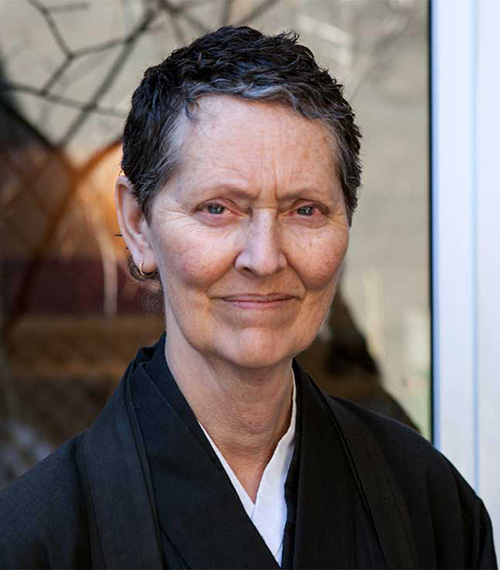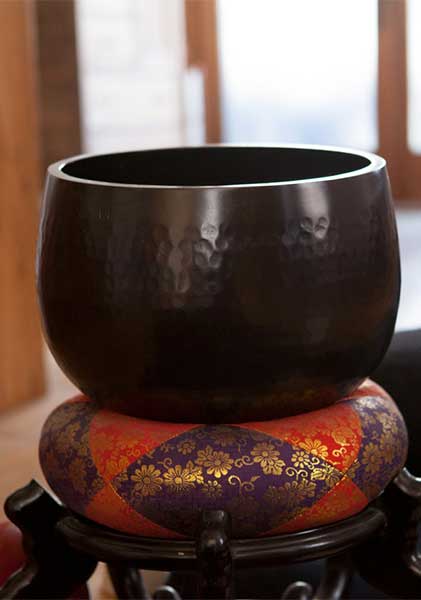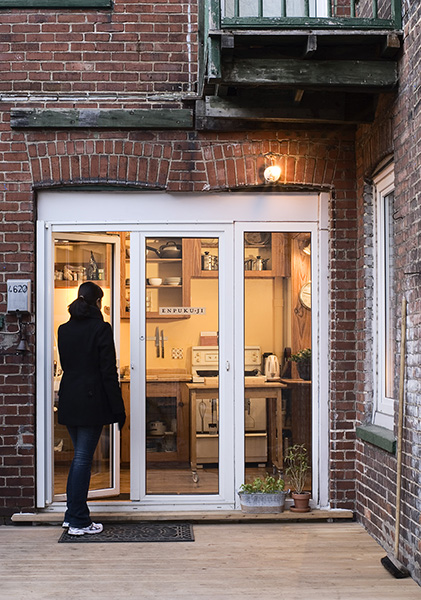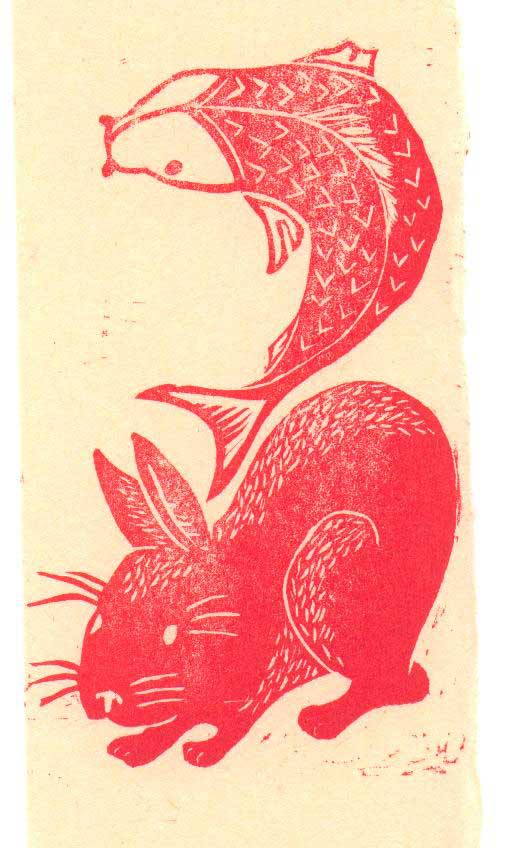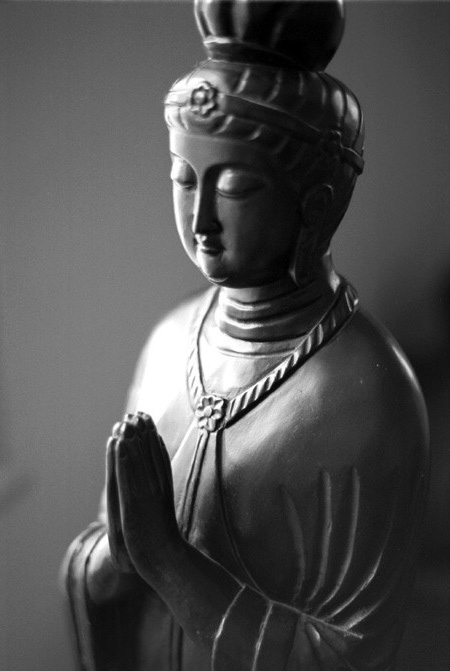It is with a light heart that New Year greetings come from Enpuku-ji!
Despite the challenges in every realm in 2023, 2024 finds Myōkyō planted firmly back in Montreal after much travel
over the past two years to help her Zen community in California. At the beginning of September, we welcomed
a new Enpuku-ji resident, Listen, a female Malamute two-month-old puppy.
The Zen Centre has been well supported with contributions both financial and otherwise.
We have received funds for a new refrigerator (after four years of poorly functioning ones), an air purifier, and a
hishiki (traditional zendo bowing mat). We have received a beautiful and very large scroll of Kuan Yin (Kannon) to
be installed this year in an alcove close to the zendo; an excellent cell phone to replace the ten-year-old one;
bountiful organic vegetables from an Eastern Townships farm; regular deliveries of vegetable curry;
many chauffeured trips with Listen to Puppy Class and for burger runs; and very-much-welcomed help with
updating the Enpuku-ji website.
Weekly practice opportunities, both in-person and online, have increased since Myōkyō's return,
and newcomers sessions are back to their monthly schedule. There has been much adaptation on everyone's
part to the Zen Centre zendo arrangement, schedule and protocol, with a young pup. We hope that zazenkai
practice will be able to begin again in the early summer.
Seiun, after many years of support with Enpuku-ji's schedule, has moved to Colombia, and has started a sitting group in Pereira, a close-by city to the farm where he lives and works the land. Seiun is still able to offer some on-line support for Enpuku-ji zazen. Myōkyō will travel to Colombia this year to lead a retreat and to bestow a name on Seiun's zendo, which was recently completed on the farm.
We would like to thank those of you who have supported the Zen Centre over the years with one-time contributions as well as monthly contributions via CanadaHelps. The response was wonderful for the call-out for monthly assistance two years ago and everyone has continued with their contributions to date.
Practice continues in a strong way at Enpuku-ji, and we hope to see some of you in the zendo this winter.
With gratitude, and with wishes for you for a year of adventure and full feeling,
Myōkyō, Abbot, and the Board of Directors


